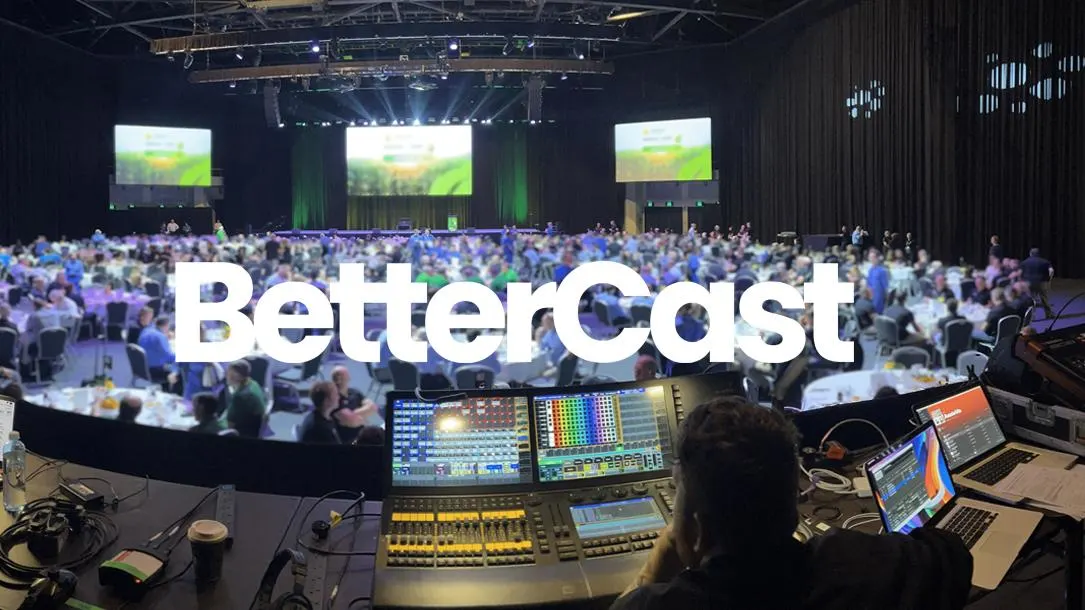Case study: BetterCast - A Journey from Vision to Reality
BetterCast began as a passion project, born out of necessity, when COVID-19 brought travel and …

As you embark on this exploration of the changing marketing landscape, be prepared: you are about to stumble across a crucial transition where artificial intelligence (AI) is rapidly becoming the stronghold of advanced marketing techniques.
These AI tools are not simply helping hands; they are progressive, perpetually evolving, and increasingly redefining marketing approaches. You'll delve into this transformative tale, unearthing revelations sourced from leading industry publications and envisioning how these AI-generated instruments are completely overhauling marketing as we know it.
As you explore this in-depth feature, remember witnessing a pivotal evolution in our marketing landscape, where artificial intelligence tools swiftly ascend as the vanguard of innovative marketing strategies. These are not mere instruments of assistance. They are continuously learning, constantly evolving, and fundamentally reshaping how we approach marketing. You'll dive deep into this transformative narrative, uncovering insights from industry-leading books and understanding how these AI generative tools revolutionise marketing.

Born from the fascinating insights of 'Girl Decoded', what if I said emotions are the new frontier in AI Marketing? Known as emotional AI, this blend of psychology, technology, and marketing analytics is stirring a seismic shift in the marketing landscape.
Just imagine this: Emotional AI tools are capable of interpreting, understanding, and even emulating human emotions. AI that delivers an unprecedented personalised user experience, content that resonates on a deeper emotional level, and marketing material hand-crafted to your psychology. As these tools gain sophistication, they open a world where every interaction is custom-tailored to evoke a specific emotional response, pin-pointing a prospect's vibrant pulse.
There are, however, some standard application principles:
Hyper-personalisation: Amplifying the personalisation of marketing content by integrating emotional cues into customer profiles.
Tailored User Experience: Dynamically adjusting user experiences to resonate with the detected emotional states in real-time.
Sentiment Analysis: Gaining deep insights into customer sentiment from various sources, such as social media posts, reviews, etc.
The benefits? Two words - transformational impact. Emotional AI in marketing translates to a deepened customer connection, amplified personalisation, and improved return on marketing investments.
It's one thing to understand the principles and benefits of emotion-based AI marketing. Seeing it in action, however, is a different sort of revelation. The practical examples provided within 'Girl Decoded' paint a vivid image of understanding how emotional AI can indeed influence marketing strategies:
1. Case Study One: Here, the company unlocked behavioural insights from consumers by using emotion AI. This, in turn, resulted in more resonant campaigns, leading to increased consumer engagement.
2. Case Study Two: Implementing emotion AI for real-time content customisation, the UX effectively mirrored customers' emotional states, drastically improving customer satisfaction and engagement.
These are mere ripples in the vast ocean of possibilities with Emotional AI in marketing. However, as we glean insights from 'Girl Decoded', we slowly observe a pattern – Emotion AI isn't merely an auxiliary tool but increasingly becoming a core component of successful marketing strategies.

Pedro Domingos's masterpiece, 'The Master Algorithm', gives us a visionary perspective. His central theme of a universal learner, a Machine Learning model that can learn anything from data, resonates deeply with the contemporary state of AI marketing. AI generative tools, as the present manifestation of the Universal Learner, draw their prowess from their ability to absorb and learn patterns from data, effectively becoming powerful tools for personalised marketing.
The relevance of this is simple: As AI systems evolve, their capability to decipher intricate data patterns will only amplify, translating to ever-improving, targeted, and dynamic marketing strategies.
Looking back at the journey of AI in marketing, we observe an upward trajectory of development, a continuous evolution echoing the tropes of 'The Master Algorithm'. Initial versions of AI tools were only capable of simple automated tasks. However, as iterations of Deep Learning algorithms have improved, the complexity of tasks they can perform has increased significantly.
This isn't just about programmable automation; these AIs can use vague inputs to generate detailed, relevant outputs, which quality marketers find invaluable. Hence, effective marketing now lies not just about understanding products and consumers but also about leveraging AI capabilities to the fullest.
Drawing themes from Kai-Fu Lee's 'AI Superpowers', the potential trajectory of AI marketing tools suggests something invigorating. As AI technologies mature, marketing's crystal ball grows only more apparent. AI will become central to marketing, driving future innovations, delivering predictive insights, and creating compelling customer experiences.
The future. It's an AI-fuelled landscape painted with hyper-targeted advertising, predictive customer engagement, and analytics drawn in real-time.
Kai-Fu Lee's concern about the apparent global gap in AI integration is a rallying cry for all industries, mainly marketing. This gap, marked by industries either lagging in or lacking AI adoption, presents missed opportunities.
As we progress into an era where AI systems are setting the marketing pace, closing this gap is not a suggestion - it's a necessity. Businesses failing to bridge this gap may fall irretrievably behind their AI-empowered competitors.

As we've explored, AI is a profound new player in marketing. But how can you, as a marketing professional in Australia, harness these AI tools? Let's walk through a few essentials.
1. Discover the Right AI Tool: There are several AI tools, each with unique offerings. A few popular ones include OpenAI's ChatGPT, Jasper (former Jarvis), and Salesforce's Einstein GPT, amongst others. Look for the one that fits your marketing requirements.
2. Equip Yourself with the Necessary Skills: To use these AI tools effectively, you'll need flair in data science, machine learning basics, and proficiency in at least one coding language.
3. Staying Future Ready: Keep a keen eye on emerging industry trends and innovations, staying attuned to future directions these AI tools may take.
Reflecting upon the insights we've gathered, one fact becomes persistently apparent: AI generative tools are revolutionising marketing, and they're here to stay. Embracing these tools and staying attuned to their evolving capabilities must now underscore every marketer's strategy.
The new age presents an opportunity to engage our audiences uniquely, driving personalised and effective marketing strategies. The journey may place us on a learning curve, but it promises a hopeful future brimming with the potential of AI-based marketing growth. Welcome to the new era of marketing – fostered and futurised by AI.
In conclusion, a new AI-driven marketing age awaits us. This shift, marked by a profound impact on audience engagement and personalised marketing strategies, symbolises a promising future flourishing with AI marketing expansion. Buckle up for this remarkable journey towards the intelligent future of marketing. Will you seize the opportunity and embrace the revolution?
Some other posts you may like

Case study: BetterCast - A Journey from Vision to Reality
BetterCast began as a passion project, born out of necessity, when COVID-19 brought travel and …
November 07, 2023
Read More
Llama 3.1 vs ChatGPT: Can Open Source LLMs Outshine Paid AI?
In the rapidly evolving world of AI and natural language processing, large language models …
November 07, 2023
Read More